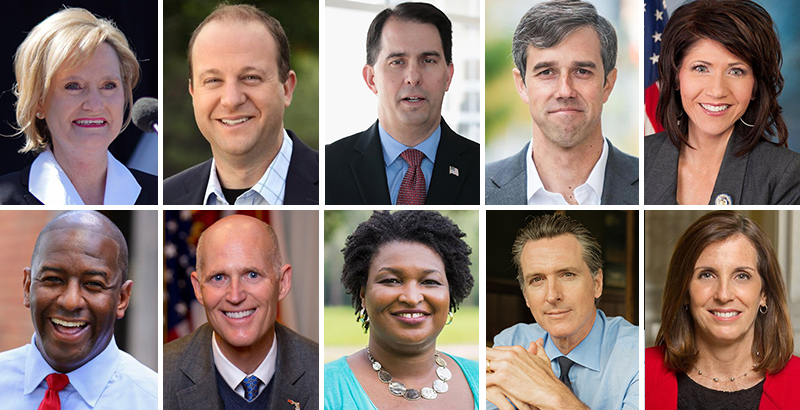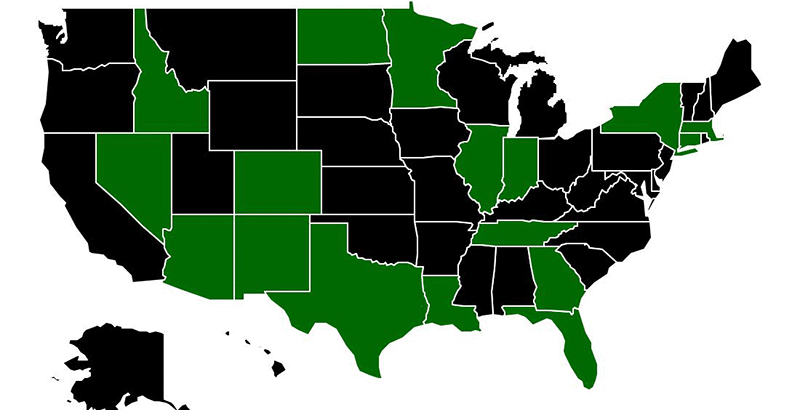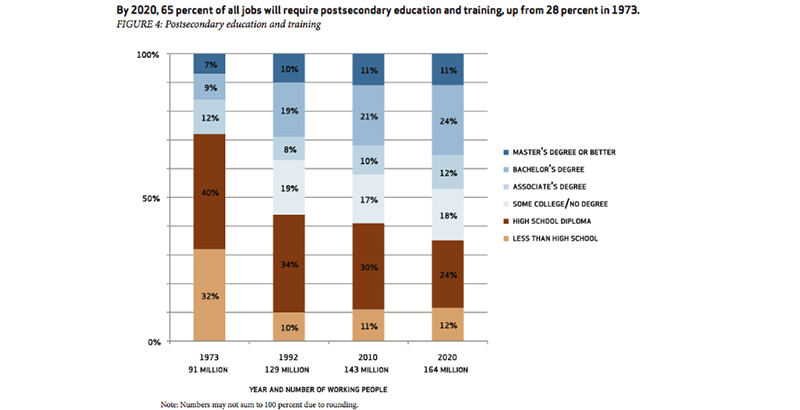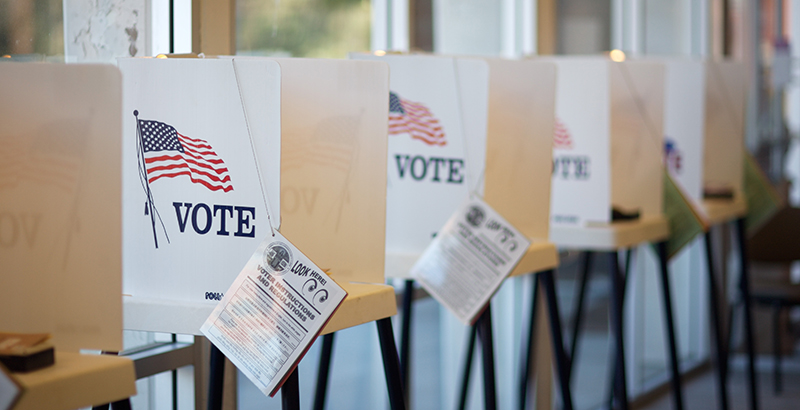Best of November: The 12 Most Popular Articles We Published This Month About Teacher Diversity, the Midterms, the ‘Homework Gap’ & More
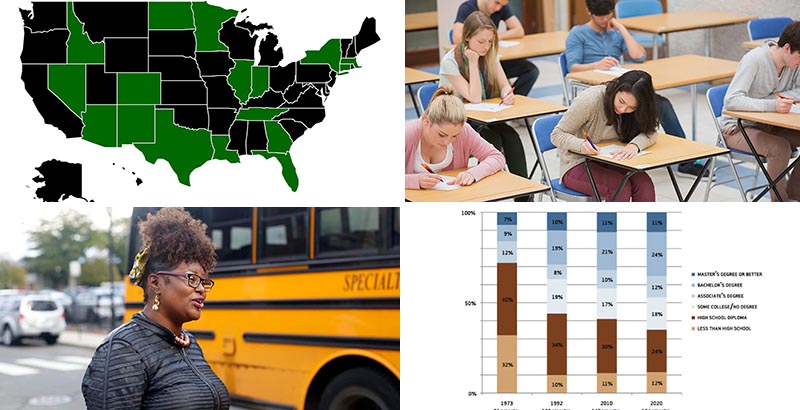
Every month, we round up our most popular and buzzed-about articles from the past four weeks. (Go deeper: See all our 2018 highlights right here)
From our comprehensive breakdown of the 70 midterm races that mattered most for education policy to our new interactive map that showcases states’ plans to turn around struggling schools and a profile of the non-profit pushing to reimagine the minority teacher pipeline, it was a busy month for The 74’s newsroom. (You can always get our top news and analysis delivered straight to your inbox by signing up for The 74 Newsletter)
Here are the most read, shared, and buzzed-about articles from November:
EDlection: For 72 hours, we liveblogged the 2018 midterms, breaking down the 70 key candidates and ballot and initiatives that could have a profound impact on the future of American education policy. Just a handful of the top verdicts to catch our eye:
—Arizona: Republican Gov. Doug Ducey is re-elected on a platform including expansion of education savings accounts (a measure that voters defeated Tuesday) and a 20 percent pay raise for teachers by 2020.
—Colorado: As Jared Polis emerges as the new governor and Democrats flip control of the state Senate, will unified control change the face of the state’s education reforms? (See our full recap of the results)
—Florida: Republican Ron DeSantis squeaks past Democrat Andrew Gillum to win the governor’s race, vowing to expand school choice and make sure more spending gets to the classroom. (See our full recap of the results)
—New Mexico: Michelle Lujan Grisham becomes the nation’s first female Democratic Latina governor, promising a rollback of her predecessor’s education reforms. (See our full recap of the results)
—Wisconsin: Superintendent of Public Instruction Tony Evers, a Democrat, denies Republican Scott Walker a third term. Walker was public enemy No. 1 to the teachers union after he dismantled collective bargaining. (See our full recap of the results)
—Nevada: Democrats win state Senate, have universal control of state government to change landmark 2015 GOP education reforms. (See our full recap of the results)
—New Jersey: Newark voters decide on elected, not appointed, board to oversee schools now returned to local control. (See our full recap of the results)
You’ll find summaries, links, and background to all the top midterm races right here.
Expert Review: Some States’ ESSA School Improvement Plans Are Missing the Mark on Equity
ESSA: Some states are falling short of the goal of promoting equity in the school turnaround plans they were required to write under the Every Student Succeeds Act, a new review finds. Two dozen peer reviewers, under the guidance of the Collaborative for Student Success and HCM Strategists, studied 17 states’ school improvement plans and found, for instance, that only two ask districts to show how they’ll address the achievement gap. The states generally fell into three categories, based on the relationship between state officials and district leaders, with those that emphasize strong state leadership in school turnarounds generally rated higher, “partnership” states in the middle, and those that focus on district leadership ranked lower. Read Carolyn Phenicie’s full summary of the expert analysis.
Future of Work: Getting students into college and hoping they graduate has been the goal of most American high schools for the past few decades. But that mindset arose only in the closing decades of the 20th century, as technology replaced lower-skilled jobs. Despite ruinous college completion and debt rates, schools have been slow to figure out how to prepare more students for jobs that do not require a four-year degree — and can often pay better than those that do. But the training demands of those jobs are more sophisticated now, so the emphasis has shifted from college OR career readiness to college AND career — exposing high school students to both. The terrain remains tricky, partly out of lingering fear of tracking poor students of color into dead-end occupational programs and partly because nearly 75 percent of high schoolers say they want a four-year degree or higher. Read David Cantor’s feature.

Profile: Jason Kamras was once best known as the former National Teacher of the Year who helped devise Washington, D.C.’s revolutionary teacher evaluation system under then-Chancellor Michelle Rhee. After years of controversy related to that system and Rhee’s leadership style, Kamras took charge of Richmond Public Schools in February. In the former capital of the Confederacy, he’s eschewing a top-down approach and any talk of teacher evaluations, saying his views have “evolved.” Instead, he’s focusing on racial injustice and promising to do everything from beautifying bathrooms to revamping funding formulas to achieve equity. Read Brendan Lowe’s full profile.

Following Victory in Appeals Court for DACA Recipients, Will SCOTUS Consider Fate of Dreamers?
Immigration: A Ninth Circuit Court of Appeals panel this month rebuffed Trump administration efforts to end Deferred Action for Childhood Arrivals (DACA), upholding a nationwide injunction to keep the program in place as lawsuits work their way through the courts. That opinion was the first from a federal appeals court, even as contentious battles over DACA rage on in the judicial system and in Congress. But the Trump administration has already turned to the Supreme Court and its newly fortified conservative majority. Either way, the fate of Dreamers, as DACA recipients are often called, could very well wind up in the hands of the nation’s highest court. Read Mark Keierleber’s full analysis.

Assessments: Eight years ago, PARCC — the Partnership for Assessment of Readiness for College and Careers — was one of two nationwide creators of Common Core-based tests that former Secretary of Education Arne Duncan declared an “absolute game-changer in public education.” Today, support for the Common Core has soured, and the 26 states that PARCC once counted as members are on their way down to just two. Enter entrepreneur Arthur VanderVeen, whose recently formed nonprofit, New Meridian, is attempting to reimagine PARCC’s catalog of more than 10,000 test questions that states can now shop for online, Amazon-style. As contributor Brendan Lowe reports, VanderVeen is crisscrossing the country, looking to convince state education departments that they can build their own custom assessments, one question at a time. Read the full report.
Commentary: When Paymon Rouhanifard stepped down after a successful tenure as the Camden, New Jersey, schools superintendent, one might assume he would have taken a few victory laps and angled for his next gig as a big city ed chief, writes contributor Robert Pondiscio. Instead, he used the spotlight to argue that we’re not playing the long game for at-risk kids — and challenged the effects of the culture of testing and accountability imposed on schools, particularly those attended by low-income children of color. The long game, Pondiscio writes, involves investing in mental health clinics, no longer disregarding the arts and sciences, and pursuing not just higher test scores, but better life outcomes for kids, rather than perpetuating testing regimens that most education reformers wouldn’t tolerate at their own children’s schools. Read his full column.
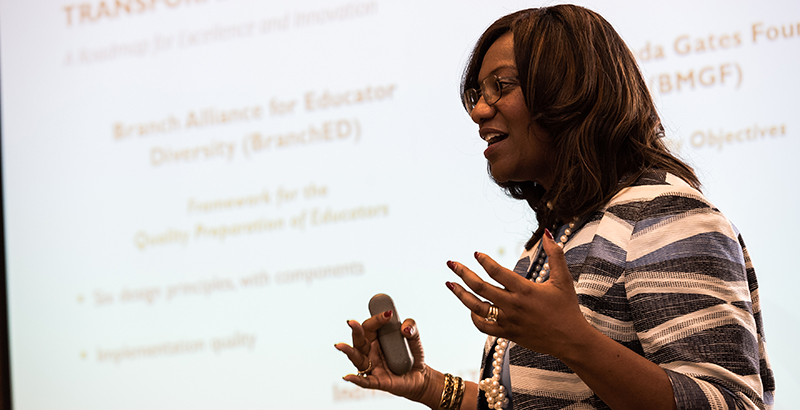
Teacher Diversity: Nearly half of minority teachers in American public schools come from just 13 percent of colleges and universities. Professors at these colleges, schools with high percentages of students of color that the federal government designates as minority-serving institutions, say their graduates are regularly underestimated, despite the widespread need for teachers of color and research that shows these schools are as good or better than predominantly white institutions at preparing teachers. Enter the Branch Alliance for Educator Diversity, or BranchED, a new nonprofit devoted to increasing awareness and strengthening the quality of the teacher prep programs at this subset of schools. Read our full profile.
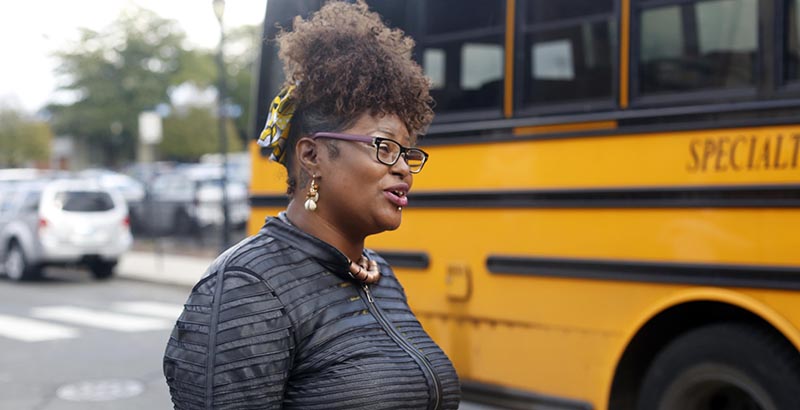
Integration: A new court challenge is casting a spotlight on the unintended consequences of Connecticut’s 30-year effort to desegregate its public schools — and cutting open a fierce debate over the value of integration. A network of magnet schools designed to encourage integration was built after the Connecticut Supreme Court ruled that racial segregation in the city schools violated the state constitution. But a new lawsuit filed this year alleges the magnet schools employ an unconstitutional “racial quota” that limits the number of black and Latino students able to enroll, while the lottery system used to select students gives preference to white and Asian students from the more affluent suburbs. If successful, the lawsuit could have ramifications for desegregation across the country. Read Mark Keierleber’s full report.
The ‘Homework Gap’: The homework gap — assignments missed because of a lack of access to technology outside of school — is more likely to affect traditionally underserved students, a new report shows. Fourteen percent of students say they have use of just one device for going online outside the classroom, and the vast majority are children of color, from low-income families or the first in their families to go to college. Educators are trying to close the gap by providing technology and wireless hotspots that students can use at home. The 74 caught up with two district leaders who see internet access as a matter of equity. Read the full report.
Rotherham: 5 Ways the Midterm Elections Will Have Major Implications for Education Reform
Analysis: When it comes to schools, “overlooked” was the theme of the 2018 midterm elections, writes contributor Andrew Rotherham. There was plenty of noise and plenty of education groups engaged in various races, but education was for the most part not a high-leverage issue — and the landscape going forward doesn’t augur well for attention to schools, either. Still, though the midterms turned on dynamics other than schools, the outcome will profoundly affect education policy. He offers five things to watch and some suggestions as to how education reformers can try to regain some lost political traction. Read the full analysis.

Family Engagement: It’s no secret that when schools engage families, student performance and graduation rates increase. So why aren’t more schools doing this, particularly for low-income families? This fall the Carnegie Corporation of New York explored that question with a new report offering five ways that schools can reach out to families to amplify their voices and support their kids, from working with parents to combat chronic absenteeism to making data accessible and bolstering social-emotional skills. Read Kate Stringer’s full summary.
Get stories like these delivered straight to your inbox. Sign up for The 74 Newsletter

;)
